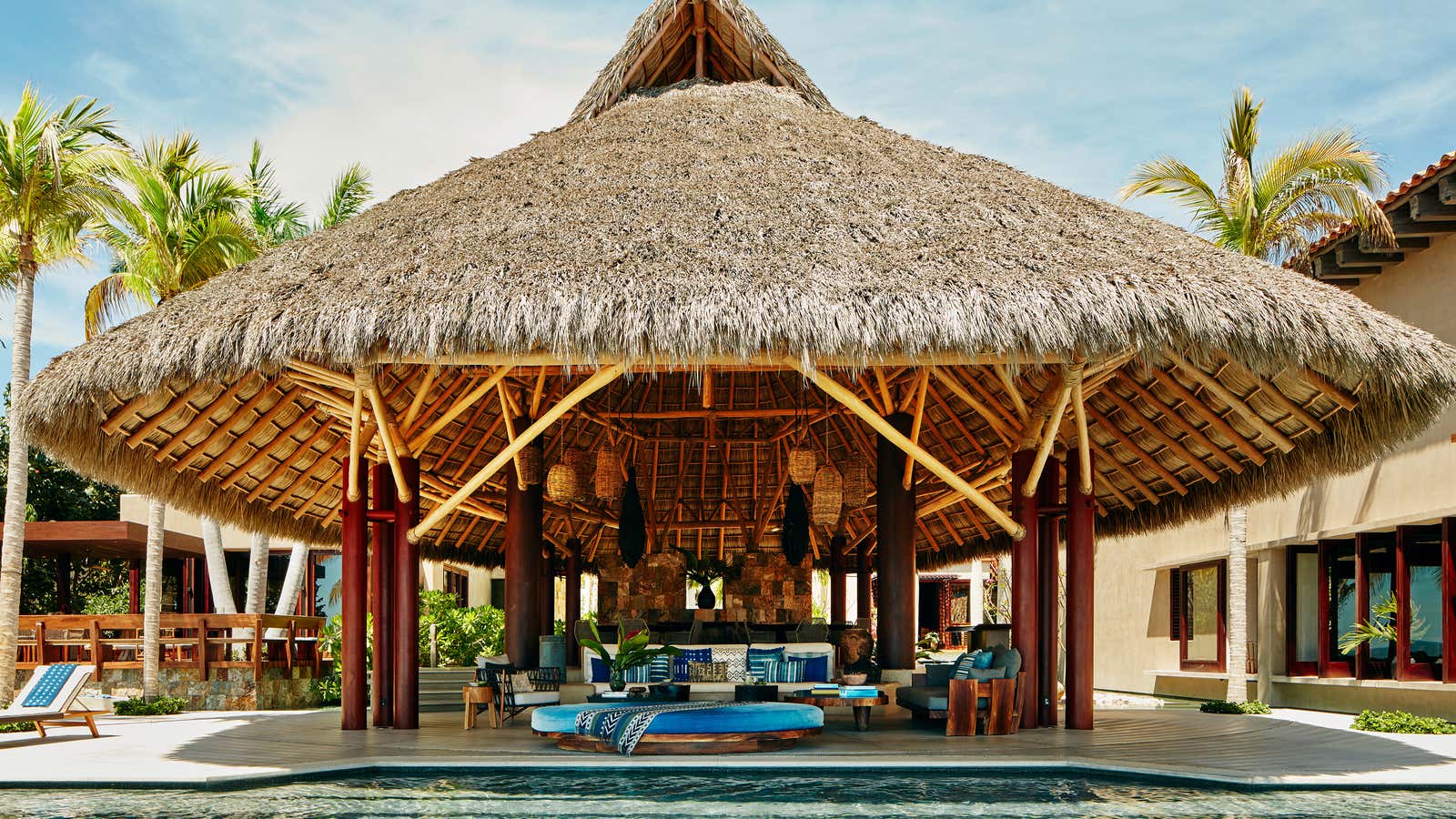Airbnb entered the luxury market today with a new rental tier called Airbnb Luxe. The Luxe portfolio includes 2,000 homes for rent, all vetted and selected from the 5,000 properties Airbnb added to its repertoire when it acquired Luxury Retreats, a high-end vacation rental company, back in 2017.
A press release bills Luxe, which is separate from Airbnb’s high-end home “Plus” offering, as “a new luxury experience that makes personal and bespoke travel more accessible to everyone.” In addition to rental homes and properties, the tier provides access to trip “designers” who can assist with planning and perks, including things like childcare, private chefs, massage therapists, and personal trainers.
Airbnb Luxe accommodations run the gamut. On the pricer end, one can opt for a private island in French Polynesia, equipped with a chef, captain, doctor, and activities coordinator for $146,246 per night, or roughly $1 million a week. There are also upscale properties, like entire French castles and ski lodges. “Each home also has something unique about it,” Airbnb’s global director of portfolio strategy, Nick Guezen, told USA Today. “For example, there’s a Luxe home in Banff, which has a T-Rex skull in the entrance — only one of four of its type in the world,” said Guezen. “The home also has a gym, with a full-sized boxing ring.”
Airbnb CEO Brian Chesky told the New York Times that the average listing on Luxe is $2,000 a night, a price tag that lines up with a demand from Airbnb guests for luxury experiences. According to Airbnb, bookings for listings worth at least $1,000 per night ticked up over 60% in the past year. It’s a desire for high-end travel that lines up with broader market trends: In January, analysts from market research firm Coherent Market Insights placed the luxury travel market at over $200 billion.
When the company launched as a tech startup in 2008, getting an Airbnb meant nabbing a spare room or couch at a steal compared to a hotel room. Now, between Luxe and Plus, travelers can rent everything from a plane to a yurt to an igloo to an entire island. In spite of that, the company hasn’t abandoned its original, cash-strapped clientele—Airbnb’s main site still boasts listings for under $20 a night.
What’s more, it’s unclear if the move into luxury offerings poses an immediate threat to luxury hotel chains; some of the Luxe offerings include stays in boutique hotels. That said, Airbnb’s suite of offerings includes experiential offerings, like its “Experiences” and its “Adventures” platforms, which allow travelers to book tours and activities, as well as overnight trips like safaris, hikes, and boating trips.
Airbnb has been teasing an IPO as it expands into the luxury travel market, but has otherwise been resting comfortably on its $35 billion valuation. The company has been historically tightlipped about its financials, but its strategy—which seems to be an attempt to dominate the entire travel experience—seems to be working. Travel publication Skift noted that third quarter financials in November of last year were “the strongest quarter in Airbnb history” and pulled “substantially more than $1 billion in revenue.”
